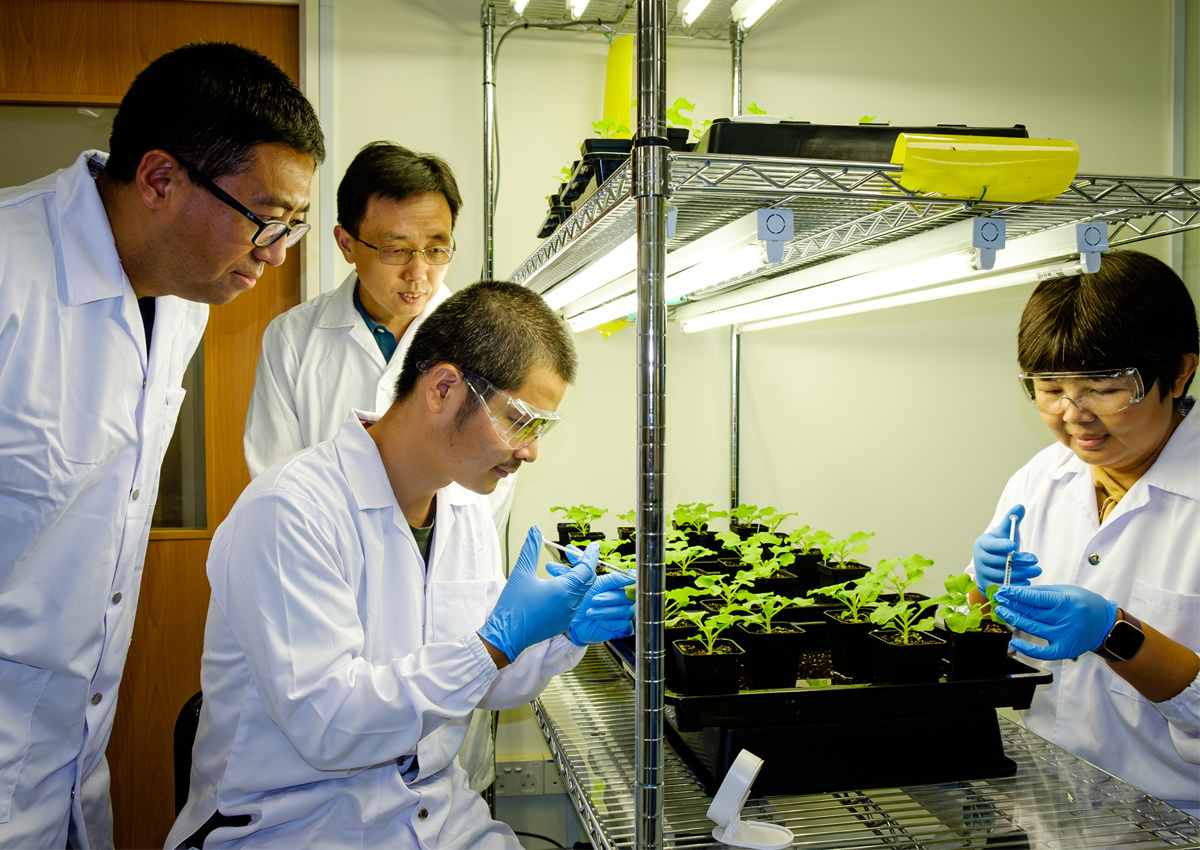
NTU Singapore Scientists Genetically Engineer Plants to Increase Oil Content
November 16, 2022| |
Scientists from Nanyang Technological University (NTU) Singapore have successfully genetically modified an important plant protein responsible for the accumulation of oil in plant seeds and edible nuts. The research team showed that their patent-pending method can increase the oil content in seeds by 15 to 18 percent.
The scientists discovered that the secret to helping plants accumulate more oil in their seeds is in one of their proteins called WRINKLED1 (WRI1). Scientists have known for over two decades that WRI1 plays an important role in controlling plant seed oil production. Now for the first time, a high-resolution structure of WRI1 has been imaged and reported by the NTU-led team. The team detailed the molecular structure of WRI1 and how it binds to plant DNA – which signals the plant on how much oil to accumulate in its seeds.
In experiments to observe how the modified WRI1 affects oil accumulation, both the modified protein and the unmodified form were injected into Nicotiana benthamiana leaves, and an analysis of triacylglycerol (a major form of dietary lipid in fats and oils) levels was carried out. The results showed that the modified WRI1 protein generated more significant spikes in triacylglycerol production compared to the control plant introduced with the WRI1 unmodified form. Subsequent experiments showed that the oil content in the seeds of the modified Arabidopsis thaliana contained more oil than the unmodified form. The offspring of this GM plant will also bear the same modified WRI1 protein and produce more oil in their seeds.
The research team hopes that this innovation can help the world in its quest for sustainability, helping to reduce the amount of arable land needed for oil-yielding crops while increasing the yield to meet the world's growing demand for vegetable oil, especially when facing the effects of climate change.
For more details, read the article on the NTU website.
| |
You might also like:
- Genome-edited Herbicide Tolerant Camelina Shows 5% Increase in Seed Oil Content
- Scientists Boost Vegetable Oil Production in Plant Leaves
- Yield10's CRISPR Genome-Edited C3007 Canola Trait in 2021 US Field Tests
Biotech Updates is a weekly newsletter of ISAAA, a not-for-profit organization. It is distributed for free to over 22,000 subscribers worldwide to inform them about the key developments in biosciences, especially in biotechnology. Your support will help us in our mission to feed the world with knowledge. You can help by donating as little as $10.
-
See more articles:
-
News from Around the World
- Initiative to Uplift Agrifood Systems Launched in COP27
- Chemists Create Artificial Photosynthesis 10 Times More Efficient than Existing Systems
- SEAsian Representatives to COP15-MOP10 Briefed on CBD Updates and Negotiations
- GRDC and Partners Target to Boost Wheat's Heat Tolerance
- Forum on Philippine Biotech Regulations
- ASCA5 Highlights CBD Updates, Science Diplomacy in Preparation for COP15-MOP10
- EFSA Finds No New Hazards for GM Cotton 281-24-236 × 3006-210-23
- Genetically Modified Houseplant Pothos to Reduce Indoor Air Pollution
-
Research Highlights
- Scientists Identify Wheat Genetically Resistant to Fungus Causing Snow Mold
- NTU Singapore Scientists Genetically Engineer Plants to Increase Oil Content
-
Plant
- Researchers Develop an Optimized CRISPR tool for Tobacco
- Restoring the Red Seed Coat in Rice through Genome Editing
-
Read the latest: - Biotech Updates (February 11, 2026)
- Gene Editing Supplement (January 28, 2026)
- Gene Drive Supplement (February 22, 2023)
-
Subscribe to BU: - Share
- Tweet

